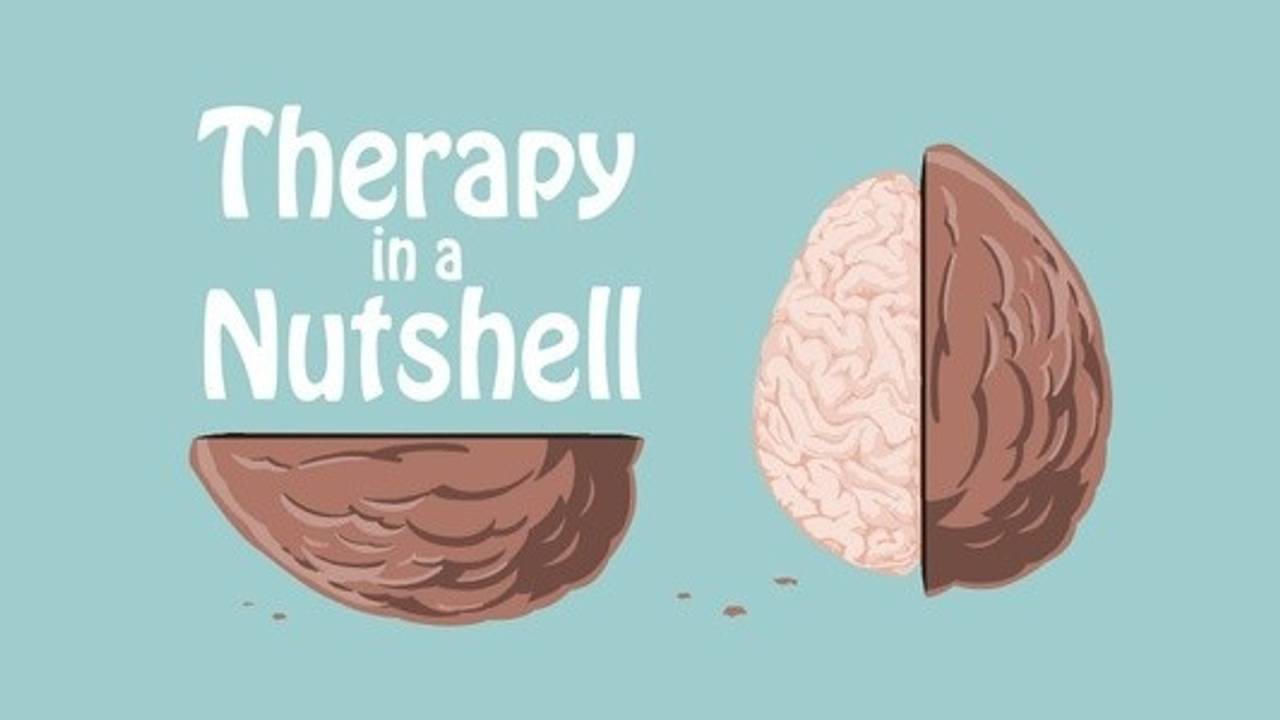Professionals Who Can Help
Getting help for mental, emotional, spiritual, or relationship issues can be difficult. Finding the right mental health professional can help you take control of any issue in your life.
We’ve pulled together the basic information you need to learn about different types of mental health professionals. Keep reading to learn who can help you.
Psychologist
The first image that comes to mind when many people think of a psychologist is a person lying on a leather couch, telling the doctor their feelings. That does sometimes happen — but psychologists do more than ask you how you feel.
Psychologists specialize in the science of behaviors, emotions, and thoughts. They work in places like private offices, hospitals, or schools. Psychologists treat a range of issues, from relationship problems to mental illnesses, through counseling.
A psychologist usually holds a doctoral degree, such as a Ph.D. Psychologists can’t prescribe medication in most states.
Psychiatrist
Psychiatrists mainly diagnose, treat, and help prevent mental, emotional, and behavioral disorders. They use psychiatric medicine, physical exams, and lab tests.
A psychiatrist is a doctor with either a doctor of medicine (MD) degree or a doctor of osteopathic medicine (DO) degree.
General practice doctors can also prescribe medications to help with mental and emotional problems. But many people prefer to go to a psychiatrist for complicated disorders. Psychiatrists’ specialties can include:
- children and adolescents
- forensic psychiatry
- learning disabilities
Online psychiatry services
Read our roundup of the best online psychiatry services to find the right fit for you.
Psychoanalyst
A psychoanalyst follows the theories and practice of Sigmund Freud by helping someone explore their repressed or unconscious impulses, anxieties, and internal conflicts. This is done through techniques like:
- free association
- dream interpretation
- analysis of resistance and transference
Psychoanalysis has its critics. But many people find that it helps them explore deep psychological and emotional disturbances that could create patterns of bad behavior without them realizing it.
Be careful in selecting a psychoanalyst. The title and credential is not protected by federal or state law, which means that anyone can call themself a psychoanalyst and advertise their services.
Psychiatric nurse
Psychiatric nurses are registered nurses who specialize in mental health. They’re known for their therapeutic relationships with the people who seek their help.
Psychiatric nurses perform psychological therapy and administer psychiatric medication. They often deal with challenging behavior related to mental health conditions. They operate under the supervision of a medical doctor.
Psychotherapist
“Psychotherapist” is a general term for lots of different types of mental health professionals. This can include psychologists and therapists. These professionals all provide psychotherapy. Psychotherapy is a type of “talking therapy.” It’s designed to improve your mental health and general wellbeing.
There are many different schools of psychotherapy. They can involve therapeutic conversations, group therapy, expressive therapy, and more. The most popular type is cognitive behavioral therapy (CBT). You can use CBT to help learn how to change bad behaviors, thought patterns, or emotions.
Mental health counselor
“Mental health counselor” is a broad term used to describe someone who provides counseling. Their titles may also include the terms “licensed” or “professional.” It’s important to ask about a counselor’s education, experience, and the types of services involved since the term is vague. Counselors can specialize in fields like:
- job stress
- addiction
- marriages
- families
- general stress
Family and marriage counselor
A family and marriage counselor specializes in common problems that can come up in families and married couples, from differences to arguments. The length of the therapy is normally brief. The sessions are typically focused on specific issues and reaching quick resolutions.
This type of therapy is also used on a one-on-one basis. Group sessions may be used sometimes if one person’s problem affects people close to them. You might see this with counseling for conditions like eating disorders or addiction.
Addiction counselor
Addiction counselors treat people with addictions. While this usually involves substance use or gambling problems, it can also include less common addictions such as sexual addictions or hoarding.
Addiction counseling is often done in a group setting. This is similar to the methods used by Alcoholics Anonymous. It can also be private or with loved ones affected by the addiction.
Religious counselor
Religious counselors are also known as pastoral counselors. They’re trained to help people with a variety of problems. Their primary focus is on crises of faith, marriage and family counseling, and emotional and mental problems. This is all done within a spiritual context.
These counselors are often leaders in area churches. They may have extensive religious and mental health training. They often conduct sessions on a one-on-one basis or in groups. You may also be able to do sessions in couples or family settings.
Art therapist
Art therapists deal in a very specific type of therapy. This method involves using creativity in ways like painting, sculpture, and writing to explore and help with depression, medical illnesses, past traumatic events, and addiction.
People who believe in this type of therapy think it can help you express underlying thoughts and feelings that traditional talking therapy may not expose.
Social worker
Social workers are dedicated to helping people cope with solve issues in their lives. These issues can include personal problems and disabilities. Social workers can be public employees or they may work in other areas including hospitals, universities, and as therapists with the correct licensing.
They may also address social problems like substance use, housing, and unemployment. Social workers are often involved in family disputes that involve domestic violence or child abuse.
There are many subtypes of social work. These can include:
- child, family, and school
- medical and public health
- mental health and substance use
Training needed
A mental health professional’s training depends on their specific field as well as the state they practice in. Psychologists often require a Ph.D., while psychiatrists require medical degrees. Almost every state requires all types of counselor to have a college degree with specialized training.
Some things to look for in a mental health professional’s background include:
- state licensing
- postgraduate degrees: masters or doctorate
- clinical experience
- published articles
Who to choose?
You have an important choice to make if you think it’s time to see a psychologist or therapist. Picking the right person to help you overcome any emotional or mental troubles is important. Keep these in mind when you’re choosing someone to talk to:
- specialty
- training
- methods
- schedule
- availability
- convenience
Taking the first step towards seeking help can be difficult. Knowing what type of mental health professional you want to talk to can help the process.
Which mental health professional is right for me? There are many types of mental health professionals. Finding the right one for you may require some research. Below is a listing of types of mental health treatment professionals to help you understand the differences between the services they provide.
The following mental health professionals can provide psychological assessments and therapy; however, cannot generally prescribe medications (although some states will allow it):
- Clinical Psychologist – A psychologist with a doctoral degree in psychology from an accredited/designated program in psychology. Psychologists are trained to make diagnoses and provide individual and group therapy.
- School Psychologist – A psychologist with an advanced degree in psychology from an accredited/designated program in School Psychology. School Psychologists are trained to make diagnoses, provide individual and group therapy, and work with school staff to maximize efficiency in the schools setting.
The following mental health professionals can provide counseling and with proper training, assessments; however, cannot prescribe medication:
- Clinical Social Worker – A counselor with a master’s degree in social work from an accredited graduate program. Trained to make diagnoses, provide individual and group counseling, and provide case management and advocacy; usually found in the hospital setting.
- Licensed Professional Counselor – A counselor with a master’s degree in psychology, counseling or a related field. Trained to diagnose and provide individual and group counseling.
- Mental Health Counselor – A counselor with a master’s degree and several years of supervised clinical work experience. Trained to diagnose and provide individual and group counseling.
- Certified Alcohol and Drug Abuse Counselor – Counselor with specific clinical training in alcohol and drug abuse. Trained to diagnose and provide individual and group counseling.
- Nurse Psychotherapist – registered nurse who is trained in the practice of psychiatric and mental health nursing. Trained to diagnose and provide individual and group counseling.
- Marital and Family Therapist – counselor with a master’s degree, with special education and training in marital and family therapy. Trained to diagnose and provide individual and group counseling.
- Pastoral Counselor – clergy with training in clinical pastoral education. Trained to diagnose and provide individual and group counseling.
- Peer Specialist – counselor with lived experience with mental health or substance use conditions. Assists clients with recovery by recognizing and developing strengths, and setting goals. Many peer support programs require several hours of training.
- Other Therapists – therapist with an advance degree trained in specialized forms of therapy. Examples include art therapist, music therapist.
The following mental health professionals can prescribe medication; however, they may not provide therapy:
- Psychiatrist – A medical doctor with special training in the diagnosis and treatment of mental and emotional illnesses. A psychiatrist can prescribe medication, but they often do not counsel patients.
- Child/Adolescent Psychiatrist – A medical doctor with special training in the diagnosis and treatment of emotional and behavioral problems in children. Child and Adolescent psychiatrists can also prescribe medication; however, they may not provide psychotherapy.
- Psychiatric or Mental Health Nurse Practitioner – A registered nurse practitioner with a graduate degree and specialized training in the diagnosis and treatment of mental and emotional illness.
Additionally, your Primary Care Physician, Physician’s Assistant or Nurse Practitioner (depending on your state) are often qualified to provide medication.
You’ve Made the Call to the Mental Health Professional. Now What?
Spend a few minutes talking with him or her on the phone, ask about their approach to working with patients, their philosophy, whether or not they have a specialty or concentration (some psychologists for instance specialize in family counseling, or child counseling, while others specialize in divorce or coping with the loss of a loved one.) If you feel comfortable talking to the counselor or doctor, the next step is to make an appointment.
On your first visit, the counselor or the doctor will want to get to know you and why you called him or her. The counselor will want to know– what you think the problem is, about your life, what you do, where you live, with whom you live. It is also common to be asked about your family and friends. This information helps the professional to assess your situation and develop a plan for treatment.
If you don’t feel comfortable with the professional after the first, or even several visits, talk about your feelings at your next meeting; don’t be afraid to contact another counselor. Feeling comfortable with the professional you choose is very important to the success of your treatment.



